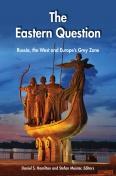William Courtney is an adjunct senior fellow at the RAND Corporation and executive director of the RAND Business Leaders Forum, as well as president of the US-Kazakhstan Business Association. In 2014 he retired from Computer Sciences Corporation as senior principal for federal policy strategy; from 2000 to 2003 he was senior vice president for national security programs at DynCorp (bought by CSC in 2003). From 1972 through 1999 he was a career foreign service officer in the US Department of State. Among his many assignments he served as US Ambassador to Georgia and to Kazakhstan, as special assistant to the President for Russia, Ukraine, and Eurasia, and as deputy US negotiator in US -Soviet defense and space (missile defense) talks. He graduated from West Virginia University with a BA and Brown University with a PhD in economics.
For nearly a quarter century, Western strategy toward the post-Soviet space has enjoyed substantial accord between Europe and America and much bipartisan backing in the United States. Central to the strategy has been support for the sovereignty, independence, and territorial integrity of the new states, for their integration into the global economy, and for democratic and economic reform. (The three Baltic states are members of the European Union and NATO; with a few exceptions they are not considered in this discussion.)
The West has substantial interests in the post-Soviet space. Peaceful development across the vast region will enhance Western security, economies, and cultural life. The post-Soviet space is a bountiful source of hydrocarbons, metals, and other minerals, a major transport route between Europe and Asia, and a repository of human talent. The West has special interests in Russia because of its nuclear weapons and energy resources, propensity to coerce neighbors, and “great power” capacity, enabling it to influence global issues and intervene in distant locales.
Western interest is higher in post-Soviet states that make democratic reforms, respect human rights, and improve economic performance. Democratic advances in Georgia and Ukraine are notable. Shared security interests, such as nonproliferation and countering violent extremism and narcotics flows, buttress Western ties with Kazakhstan and other Central Asian and South Caucasian states. Caspian energy resources and export routes in Azerbaijan, Georgia, Kazakhstan, and Turkmenistan are important. Links with diaspora communities in the West, such as Ukrainian and Armenian, have salience.
Post-Soviet relations with the West are undermined by strains with Russia over its aggression in Ukraine and the wider risks posed by the conflict in its east, by illiberal governance and human rights abuses in such places as Azerbaijan, Belarus, Tajikistan, Turkmenistan, and Uzbekistan, and by unstable “frozen conflicts” in Abkhazia, Nagorno- Karabakh, South Ossetia, and Transnistria. Without more progress in the post-Soviet space, the risk of Western retrenchment will grow. Where governments repress their people, the West tends to lose interest and criticize bad behavior. Interests are sometimes at odds with each other, and Western strategy must adapt. Despite energy wealth in Azerbaijan, the West criticizes its human rights abuses, such as the imprisonment of recently released Leyla Yunus. The post-Soviet space lags in competing against other global regions for investment and trade.
Although authoritarian rule in most of the post-Soviet space is a frustration, the West does too little to nurture positive change and productive ties. The West will best serve its interests by encouraging reform, building links with civil society, fostering economic opportunity, and assisting states with geopolitical challenges that they are less able to manage on their own, such as security threats, frozen conflicts, and regional power shifts.
Read the rest of the chapter by clicking on the pdf to the right.

